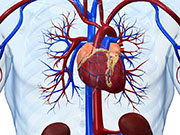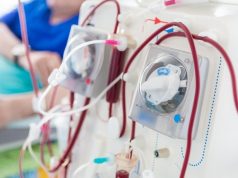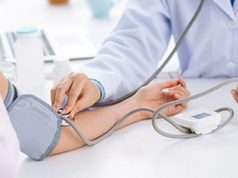Risk of death from cardiovascular causes, myocardial infarction, stroke up with abnormal troponin T
WEDNESDAY, Aug. 12, 2015 (HealthDay News) — For patients with type 2 diabetes and stable ischemic heart disease, troponin T concentrations predict cardiovascular events, according to a study published in the Aug. 13 issue of the New England Journal of Medicine.
Brendan M. Everett, M.D., M.P.H., from Brigham and Women’s Hospital and Harvard Medical School in Boston, and colleagues measured cardiac troponin T concentration at baseline with a high-sensitivity assay in 2,285 patients (99.6 percent had detectable troponin T concentrations). The authors examined the correlation between troponin T concentration and a composite end point of death from cardiovascular causes, myocardial infarction, or stroke.
Overall, 39.3 percent had abnormal baseline troponin T concentrations. The researchers found that the five-year composite end point was 27.1 and 12.9 percent among those with abnormal and normal troponin T concentrations at baseline, respectively. Among patients with abnormal troponin T concentrations, the hazard ratio for the composite end point was 1.85 (95 percent confidence interval, 1.48 to 2.32; P < 0.001) after adjustment for confounding variables. Random assignment of patients with abnormal troponin T concentrations to prompt revascularization versus medical therapy alone was not associated with a significant reduction in the rate of the composite end point (hazard ratio, 0.96; 95 percent confidence interval, 0.74 to 1.25).
“The cardiac troponin T concentration was an independent predictor of death from cardiovascular causes, myocardial infarction, or stroke,” the authors write.
Several authors disclosed financial ties to the pharmaceutical and medical device industries.
Full Text (subscription or payment may be required)
Editorial (subscription or payment may be required)
Copyright © 2015 HealthDay. All rights reserved.








